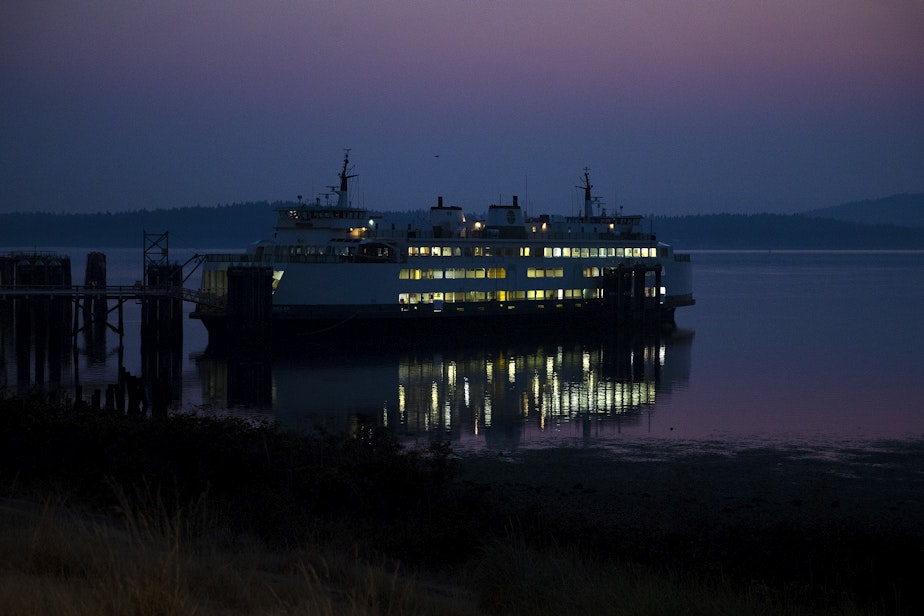'We're at a breaking point.' Washington ferry workers demand 20% raise

Unionized ferry workers who keep Washington state’s ailing fleet afloat are calling for higher pay and better staffing.
On Tuesday morning, more than 30 engineers and oilers stood in front of the bustling downtown Seattle ferry terminal and demanded that the state invest more money into engine room jobs.
Last year, Washington State Ferries had to delay or cancel hundreds of sailings due to crew shortages. The Marine Engineer Beneficial Association (MEBA), the union that represents about 400 engine room employees, says most of the delays and cancellations resulted from a ferry missing an engineer or oiler.
RELATED: Short on staff and ships, can Washington's new ferry chief navigate out of troubled waters?
These jobs below deck are spread so thin over the current fleet that if even one person calls in sick, an entire route can shut down. Right now the ferry system isn’t even running at full service, with 15 out of 21 boats sailing.
“They're building new ferries, but who's going to work on those ferries?" asked Brandi Bennett, chief engineer on the MV Tillikum that serves the San Juan Islands. "We're already short-staffed, so the investment in new ferries is great but they need to have investment in the crew that keeps them running.”
Sponsored

This summer the union is negotiating with the state’s Office of Financial Management to hire more engineers and oilers aboard the ferries and at docks. Bennett and the others say the agency needs to add at least 50 people to keep up with current workload.
Washington Ferries reported nearly 18.7 million riders last year, over a million more than in 2022. The union says the state needs to move quickly before new electric ferries come online in 2028 and an expected “pension bubble” pops.
RELATED: A sneak peek at Washington's planned hybrid electric ferries
“These people have been working here for 20, 30 years. They're at that point where they're getting close to retiring and we're going to see a potential mass exodus of engineers coming out,” said Roland Rexha of MEBA. “It's not going to be the more junior engineers. It's not going to be the jobs you can fill tomorrow. It's going to be the jobs that you can't fill. The 10- to 15-year experienced men and women that have been here for a long time.”
Sponsored
Workers on Tuesday also said they need to see pay raises to keep up with the cost of living and rate of inflation. Rexha said the union is working to bring their pay closer to the jobs above deck.
On most commercial and ferry ships the engineer and captain are paid about the same. But on Washington’s ferries, Rexha said there is about a 20% discrepancy.

Hayden Mackley from the Office of Financial Management wrote in an email that, “while we can’t comment on specific negotiations, recruitment and retention is generally one of the factors considered when determining compensation packages.”
The current collective bargaining agreement between the state and the union expires June 30th next year. The next agreement would be in effect from July 1, 2025, through June 30, 2027.
Sponsored
RELATED: Missed chemo treatments, water-crossed lovers separated: Washington state's broken ferry system
Mackley writes that tentative agreements will be submitted by Oct. 1, 2024, when the Office of Financial Management director will determine if the agreements are financially feasible.
Bennett and the other employees on Tuesday said in the next contract they need to achieve a better work-life balance. Some people came with their spouses and children holding homemade signs.
“We're at a breaking point,” Bennett said. “The service is relying completely on overtime right now to keep the boats running, and we all want to keep the boats running for you, but there's a certain point where we can't we can't work anymore.”




